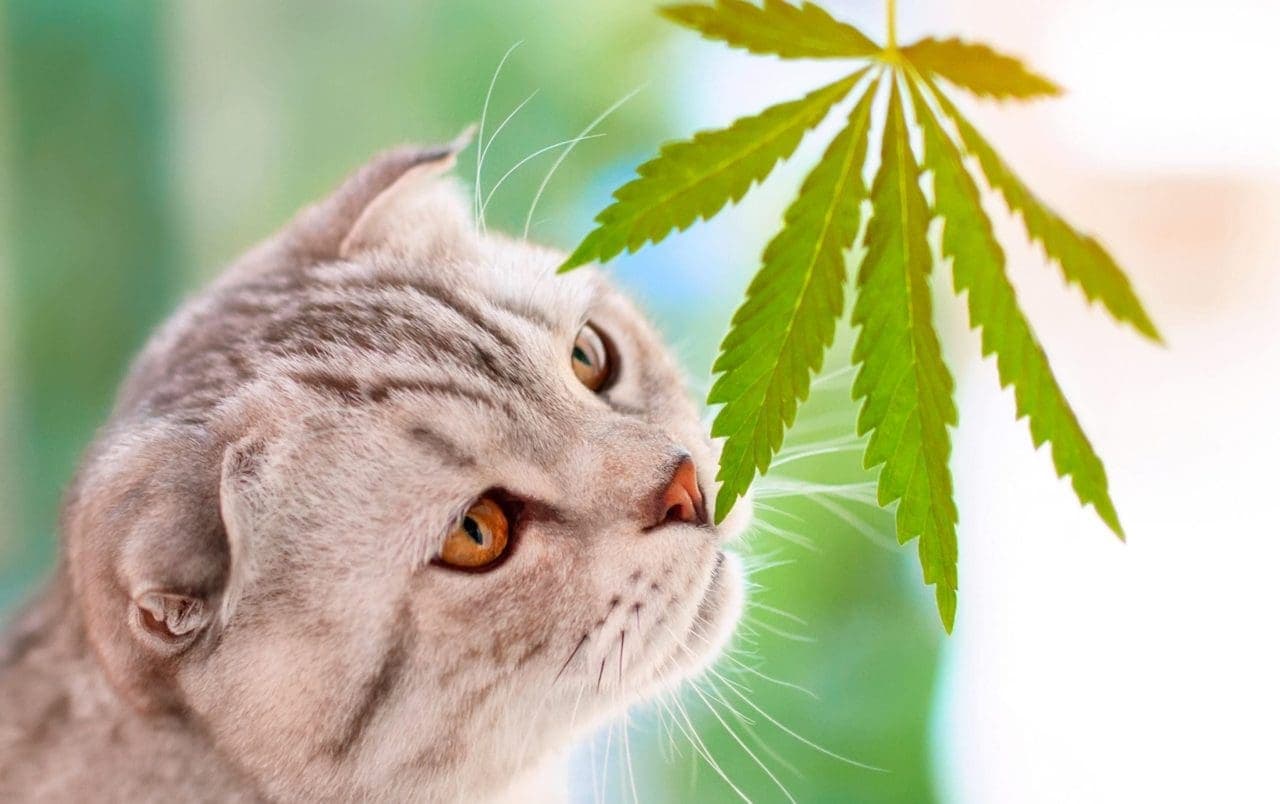CBD for Pets: Uses, Safety, Where to Buy, and More

Article written by

Elena Schmidt
Content reviewed by

Dr. Lewis Jassey
CBD is a non-intoxicating cannabinoid derived from hemp and cannabis. Research indicates it may support pets, especially dogs, suffering from inflammatory pain, seizures, and anxiety. As people become increasingly aware of CBD’s benefits, many have turned to this therapeutic compound to help their furry friends.
Read on to learn more about pet CBD usage, safety, and efficacy, including where to buy pet CBD products and dosage recommendations.
Get your medical marijuana card
What Is CBD?
CBD, or cannabidiol, is a natural compound in cannabis plants and hemp plants. It interacts with endocannabinoid system (ECS) receptors, which regulate various physiological processes, including pain, mood, and appetite in humans and animals. Research indicates CBD also binds with serotonin receptors, possibly contributing to its mood-boosting properties.
Unlike THC, CBD does not have intoxicating effects and will not make pets high.
Instead, CBD is known for its anti-inflammatory, analgesic (pain-relief), and anxiolytic (anti-anxiety) properties, making it a popular wellness supplement for many people. A CBD-based medication called Epidiolex is also FDA-approved for pediatric seizures.
Is CBD Safe for Pets?
Pet studies have shown that CBD is generally safe at various doses, with a few notable caveats:
- A Frontiers in Veterinary Science study found that 2 mg/kg of CBD twice daily was safe for dogs with osteoarthritis. Notably, this dosage also improved the canines’ comfort levels. Pet owners did not report any side effects. However, serum chemistry showed increased alkaline phosphatase levels, a marker linked to liver damage and bone disorders.
- Research from Colorado State University suggested that Beagles can safely consume a high dose of 20 mg/kg full-spectrum CBD oil daily for six weeks. However, some mild side effects were observed in the test group, including increased serum alkaline phosphatase and diarrhea.
- The Journal of Feline Medicine Surgery found that CBD was safe for healthy cats at maximum doses of 30.5 mg/kg.
Researchers’ main concern in these studies is that CBD inhibits a chemical called cytochrome P450 that metabolizes most drugs. If a drug’s efficacy depends on P450 functioning, CBD could render it less effective. As a result, pet owners should consult with their veterinarians before purchasing and administering CBD to their furry friends.
It’s also important to note that the quality and source of the CBD product will impact its safety profile. For example, the Journal of Feline Medicine Surgery study indicated that cats who consumed CBD with MCT oil experienced more gastrointestinal problems. Additionally, THC presence led to higher chances of adverse effects.
Potential Risks and Side Effects
CBD can cause other side effects in pets, like dry mouth, drowsiness, and lowered blood pressure. Additionally, whole-plant, full-spectrum CBD products may contain high doses of THC, which can be toxic to pets. Pet owners should use high-quality, broad-spectrum CBD products with no THC to be safe. (Better yet, try to find an organic CBD oil that is broad-spectrum.)
Pet Health Conditions CBD May Help Treat
CBD may have therapeutic benefits for several health conditions in pets, including seizures, anxiety, and pain.
- Seizures: Studies suggest that CBD may help reduce the frequency and intensity of seizures in dogs.
- Anxiety: Anecdotally, CBD may help anxiety in dogs and cats, including separation anxiety and noise phobias.
- Pain: CBD may relieve pain in pets, especially those with chronic inflammatory pain like arthritis.
Dosage Recommendations
Dosage recommendations for CBD in pets vary depending on the size of the pet, the condition, and the type of CBD product. As a general guideline, pet owners should start with a lower dose of CBD and gradually increase it until they see the desired effect. The dose of CBD for pets is typically based on their body weight, with higher amounts for larger dogs.
The American Kennel Club (AKC) recommends aiming for about 0.1 to 0.2 mg per kilogram of the dog’s weight given twice daily by mouth.
When choosing pet CBD oils, AKC recommends looking for products with the National Animal Supplement Council (NASC) Seal of Quality Assurance, like Pet Releaf, and using reputable brands with third-party lab-tested products. These formulas should be free from contaminants like heavy metals and should contain organic, natural ingredients.
Some of the best CBD pet products include high-quality CBD oils and CBD tinctures. AKC recommends avoiding CBD edibles as many contain toxic additives.
Popular CBD pet brands also include Honest Paws and Charlotte’s Web.
The Bottom Line
CBD products for pets are increasing in popularity. From CBD treats to tinctures, pet owners are turning to CBD more and more to help their pets suffering from pain, seizures, and anxiety. Still, pet owners should be aware of potential risks and side effects. It’s essential to consult a veterinarian before giving a pet CBD and to use high-quality CBD products with 0 THC.


